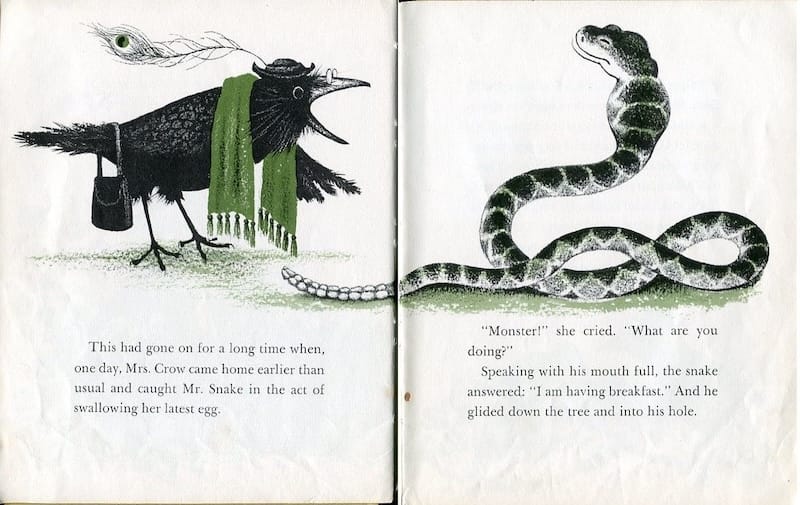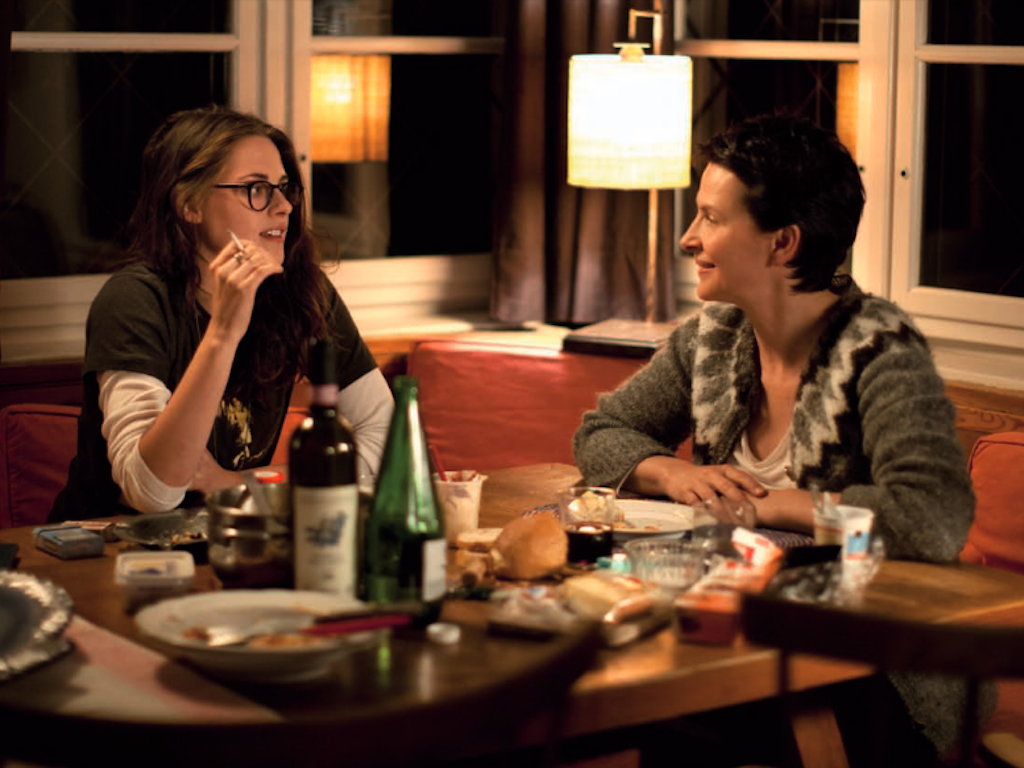You know what I'm sick of? Journalists writing drivel like, "It is unseemly to celebrate the shooting of a human being with a wife and children – even a man whose rhetoric we may have despised." It goes hand in hand with the good old "wives and daughters" refrain in response to Trump's "grab them by the pussy" tape. Why write "with a wife and children"? If a human without those golden pedestal relationships gets shot, what then? We all run out into the streets screaming, "Yay, murder"? If a person needs a spouse and child for them to have worth and/or a moral compass, humanity is absolutely fucked.
I don't want to live in a country where people get killed (or fired) for their idiotic opinions, but I also don't want to live in a country with a pedophile rapist president; ICE raids; a hatred of intelligence, women, children, LGBTQIA+ people, the poor, the arts, and everything else that prevents this place from being a homogenized cesspool of tradwives and incels. Tl;dr: I hate it here! I won't pretend to feel bad about Kirk's death just because his deeply bizarre wife and, let's be honest, probably irreparably damaged kids, exist. I wish we weren't trapped in the rotten political environment that led to his death, but it's also maddening to pretend like this evil "religious" grifter didn't directly contribute to — and profit from — that environment.
I try not to focus too much on politics here because I suspect people read this newsletter for escapism, but sometimes I must scream into the void. And now, back to our regularly scheduled programming.
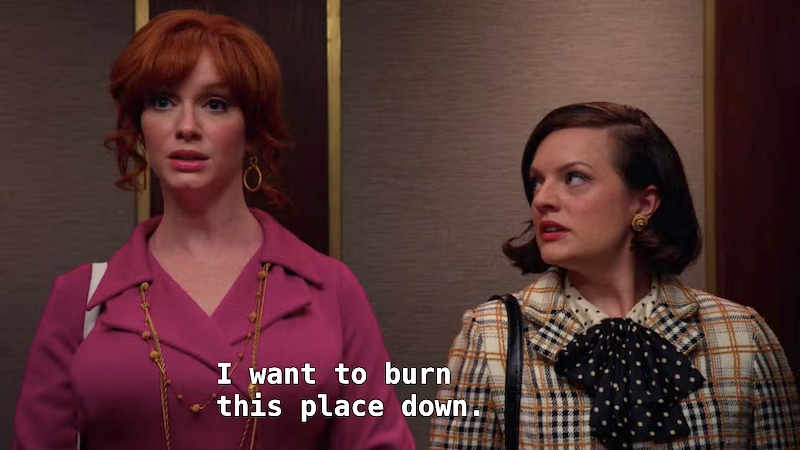
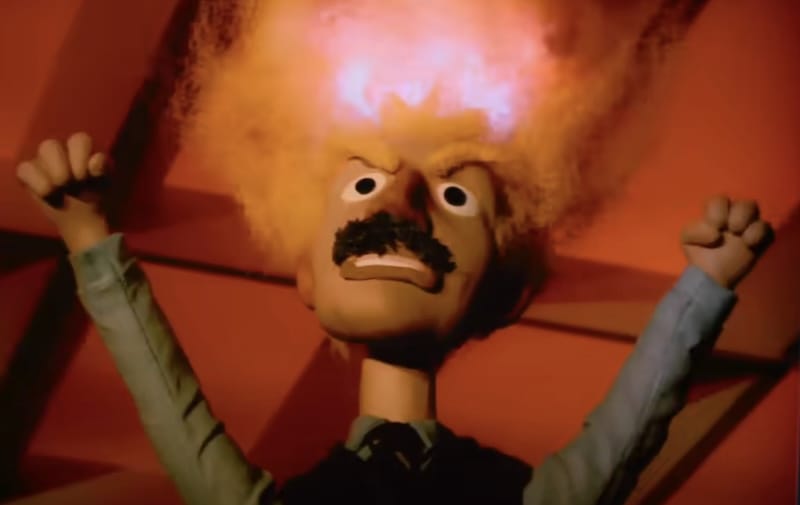
I'm ashamed to say that I've been sleeping on playwright/filmmaker Annie Baker. I saw and loved "Janet Planet" (2023), her first foray into cinema, so now I'm reading all her plays. There are eight original ones, including the 2014 Pulitzer Prize-winning "The Flick." Unfortunately, none of the performances have been filmed so I haven't actually seen any, but I'm hoping to catch one in the future now that Baker is on my radar. For those who enjoy knowing about celebrity connections, Baker is married to Noah Baumbach's brother, Nico, thus making her Greta Gerwig's sister-in-law. I love imagining them at Thanksgiving talking through prospective projects and gossiping about Hollywood assholes. If you want a snippet of what that might sound like, read their conversation in Interview (and while you're at it, listen to Baker on "WTF with Marc Maron" in 2015).
Of what I've read so far ("Body Awareness," "Circle Mirror Transformation"), "The Flick" stands out as a subtle, layered work written by a former service industry comrade. It's about three employees at a single-screen 35mm movie theater in Worcester, MA:
- Sam, 35, white, shaved head, Red Sox fan, "lives in [his parents'] attic or something"
- Avery, 20, Black, Clark student, believes "Pulp Fiction" was the last truly great American movie
- Rose, 24, white, projectionist, the object of Sam's manic pixie dream girl fantasy despite (0r because of) how much she diverts the male gaze with her appearance
Throughout the course of the play, the theater undergoes the switch to digital; one of the employees is fired; and relationships shift c/o underlying race, class, age, and gender dynamics. It's a play by, about, and for movie lovers with a keen understanding of how loyalties form and break at a workplace on the precipice of modernization.
I can't find good data on how many movie theaters in the United States currently have film projectors, but a common stat I see bandied about sans good documentation says it was only 8% when "The Flick" premiered in 2013. It was always a secret dream of mine to work as a projectionist at a movie theater in high school but instead, I spent three years at Auntie Anne's Pretzels (where I must admit we had our own version of "Dinner Money"). By the time I left in 2008, the switch to digital was already underway and opportunities were scarce. Now, there are only a handful of analog theaters left. "The Flick" captures this shift, asking valid questions about what might be lost — for humans and for art — in the process.
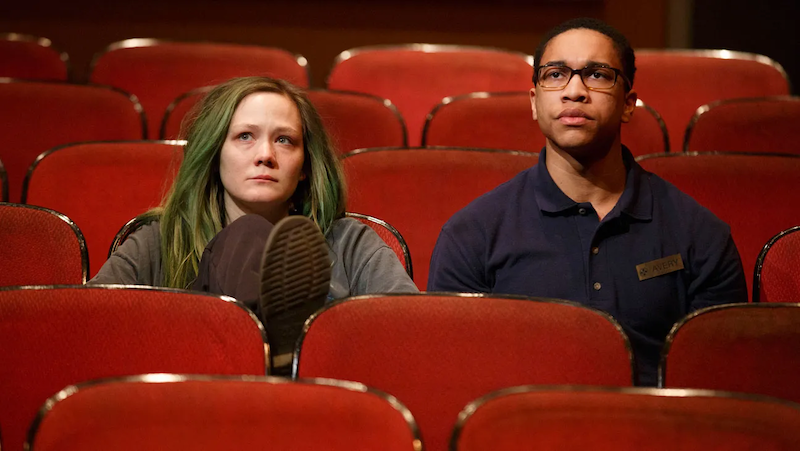
Read if you like: John Cassavetes, Raymond Carver, Kelly Reichardt, Saturday matinees with Red Vines, the smell of celluloid, movies/books where "nothing" happens.
Since reading and loving "The Wall" (1963), I've been meaning to hunt down the other Marlen Haushofer books available in English (she's Austrian/they're originally written in German). Her autobiography, "Nowhere Ending Sky" (1966), and another book of fiction, "The Loft" (1969), are available in the UK. Many others, including five fantastic-sounding children's books, have still not been translated. In July, New Directions Publishing threw us another bone and released "Killing Stella," an 87-page novella easily read in a few hours. When I finished it last night, I originally wasn't blown away, but then I couldn't stop thinking about it and now I'm convinced it's nearly as brilliant as "The Wall."
The book begins with Anna, the first-person narrator, who explains that she's utilizing a weekend alone to write down her thoughts about Stella, a young woman who lived with her family before throwing herself in front of a truck. During the course of their time together, Anna passively observes Stella's deteriorating mental health, probably not dissimilar to her own at times, and chooses to do nothing. Why doesn't she intervene? It's complicated. Anna loves her son, Wolfgang, in a way that, quite frankly, creeps me the fuck out. Their relationship has shades of parentification and emotional incest, likely born from the loneliness Anna feels within her marriage to Richard, an adulterous lawyer. The only pleasure in her life comes from spending time with Wolfgang and looking out the window at her garden. Anna is trapped within a prison that makes her feel helpless, dissatisfied, and ultimately, jealous of anyone who manages to escape. Here's a snippet of the bourgeois ennui you'll encounter:
Once we reach a certain age, we are gripped by anxiety and try to fight against it in some way. We sense that we're in a hopeless position, and make desperate little attempts to escape. If the first of these attempts is unsuccessful, as it generally is, we surrender until the next one, which will already be weaker, and which will leave us feeling still more miserable and defeated. So Richard regularly drinks his red wine, chases after women and money, my friend Luise [Stella's mother] pursues young men who are young enough to be her son, and I stand at the window and stare into the garden.
I'm loath to reveal more because the way Haushofer builds tension hinges on the reader's increased understanding of Anna, and I would hate to ruin anyone's horrific romp through domestic dread.
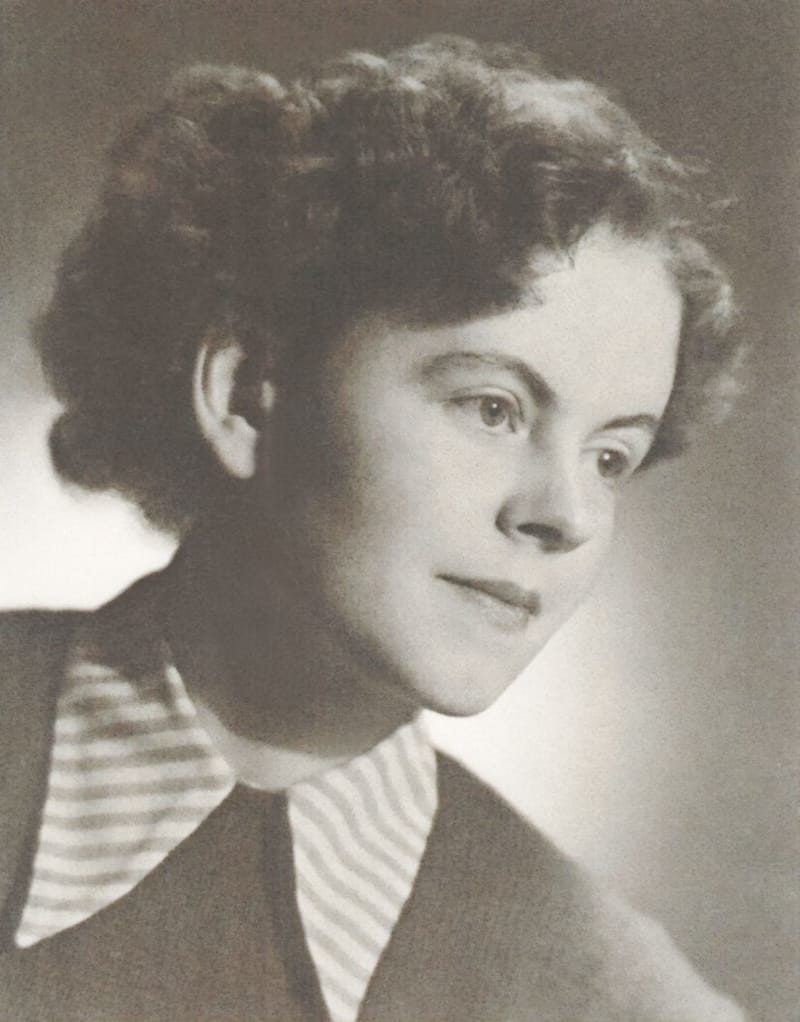
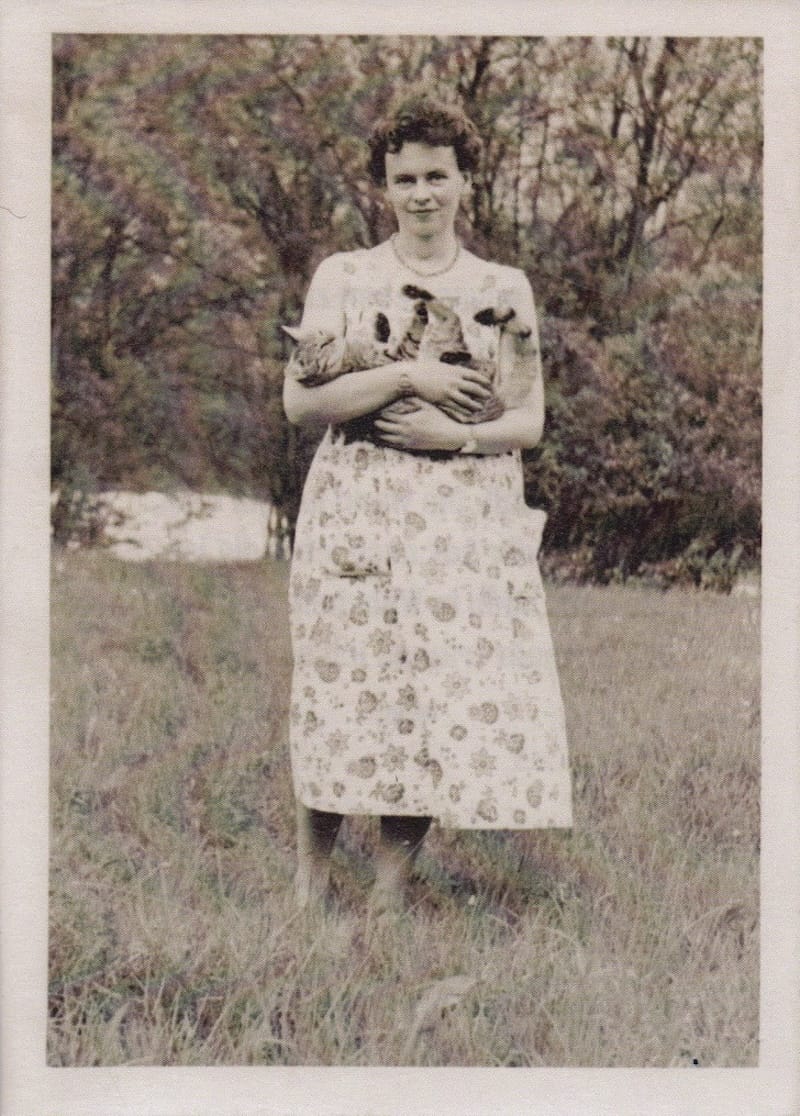
"The cat and I were made of the same stuff, and we were in the same boat, drifting with all living things toward the great dark rapids. As a human being, I alone had the honor of recognizing this, without being able to do anything about it. A dubious gift on the part of nature, if I thought about it.”
Read if you like: Penelope Mortimer, Barbara Comyns, "Bartleby, the Scrivener," "Wanda," generational trauma, downtrodden loners, Betty Draper.
One of my earliest childhood memories is going to the Tarentum Library with my mom during Halloween and stumbling upon a table featuring books from Patricia Coombs's "Dorrie the Little Witch" series. I was obsessed with Dorrie's mischievous nature, unmatched socks, and above all else, her black cat, Gink. As an adult, the writing isn't exactly riveting, but the illustrations still charm the hell out of me.
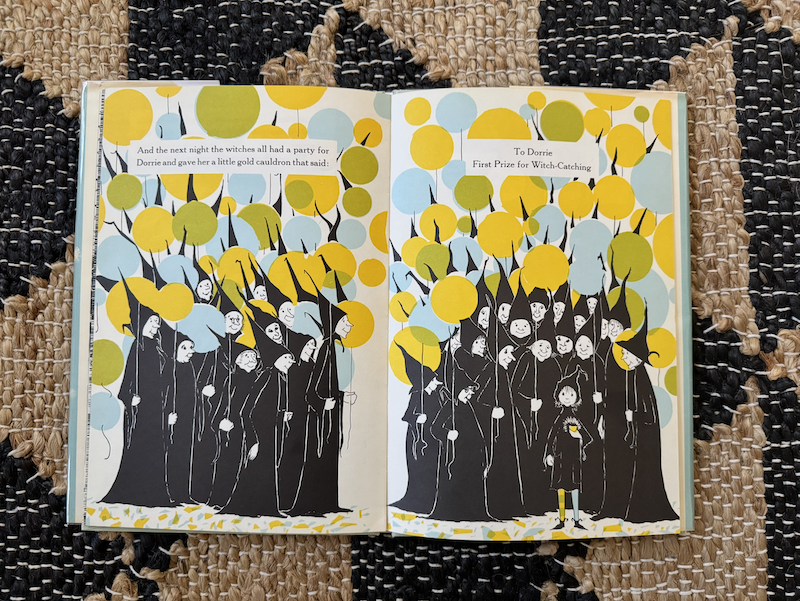
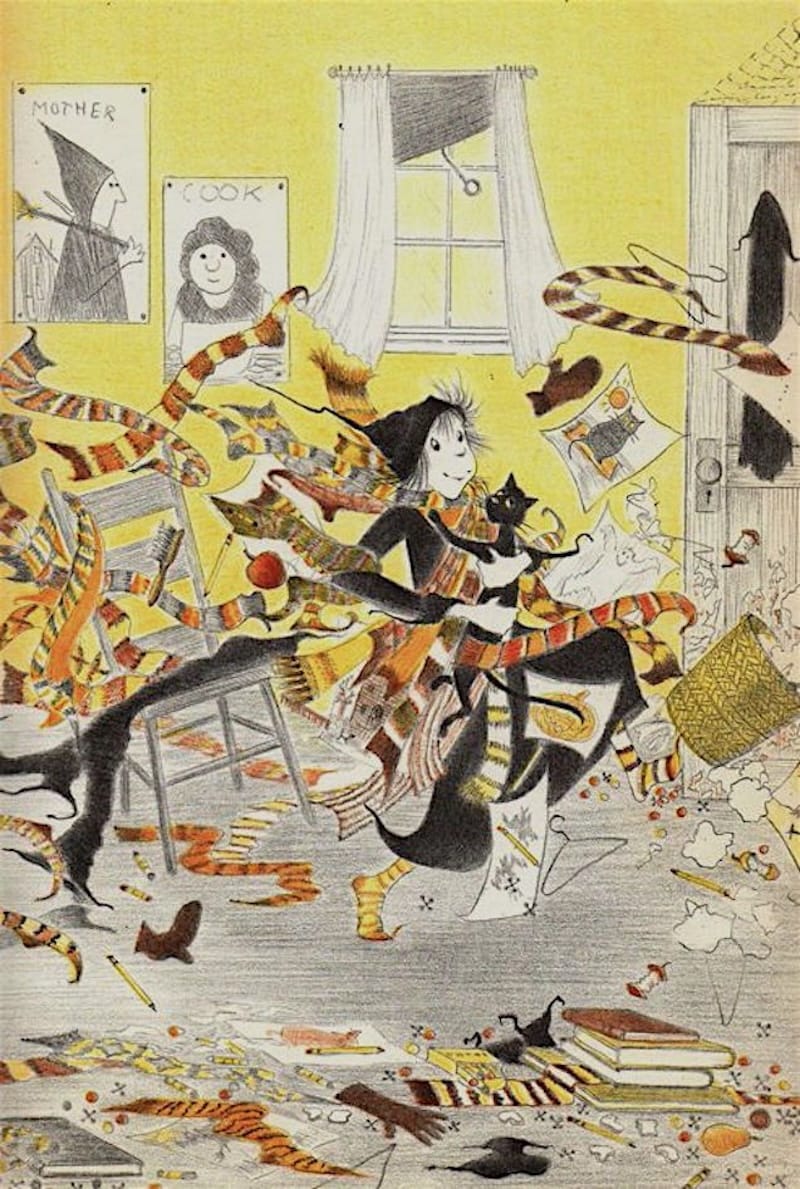
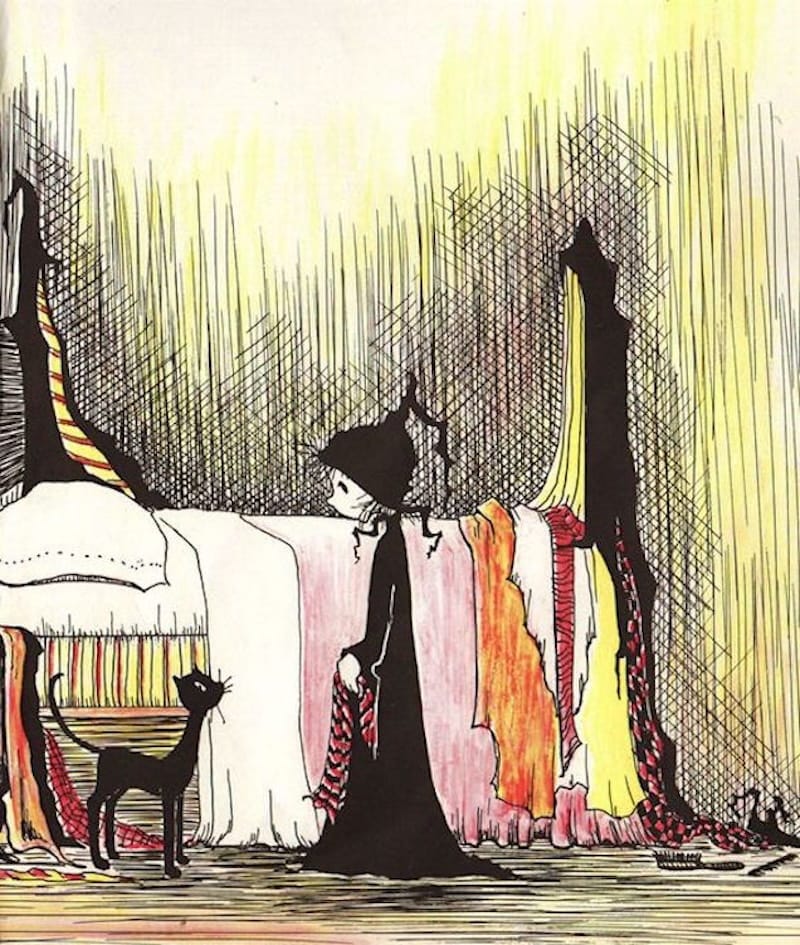
"Dorrie and the Witchville Fair" (1980, book sixteen) and "Dorrie and the Weather-Box" (1966, book four).
I can't even tell you how much time I've wasted over the years trying to figure out a) if Coombs is still alive and b) how to contact her. According to this 2024 piece on Yahoo's ad-riddled news site, Coombs is still alive and lives in Waterford, CT, which is about three hours from me. Maybe I should show up there one day and start screaming, "PATRICIA COOMBS" in the street until someone either calls the police or tells me how to find her. Aside from the story about how she got published, this is my favorite snippet from the article:
[Coombs] said at the time that her inspiration came from the antics of her two children, more than a dozen cats, one turtle in a bathtub and an upstairs hamster and a downstairs hamster.
The upstairs and downstairs hamster line kills me because all of her books feature some variation on "down, down, down the stairs" or "up, up, up the stairs," and I assume that shit is directly rodent-inspired.
If you want more examples of children's books I'm obsessed with, this list that I made a few years ago is evergreen.
From October 3-5, Seventh Row (run by Alex Heeney, whom you've heard me mention) is hosting a virtual event
featuring historians, critics, and artists in conversation about queer and trans storytelling — from reclaiming histories erased from the record to celebrating the stories that resonate today.
Now, more than ever, it's important to watch, study, and celebrate films made by queer and trans storytellers. As the world slips deeper into fascism, art becomes a powerful tool for challenging norms and fostering collective empathy. There's a reason why the Trump administration has been systematically defunding the arts, humanities, and education: the dumber and more disconnected people are, the easier they are to manipulate. Instead of spending a few hours watching some mindless trash on Netflix, come together with other cinephiles to think deeply about not just art, but the systems of political oppression that we must all rail against in the hopes of creating a better world.
Over the years, Seventh Row has hosted many excellent workshops and events, including:
- Lockdown Film School, a series during the height of the pandemic featuring moderated discussions with filmmakers like Patricia Rozema and Amma Asante.
- Reel Ruminators, an ongoing "off the beaten path" film club with monthly live discussions.
- A book club that provides access to fourteen ebooks on beloved directors (Joanna Hogg, Kelly Reichardt), genres (creative nonfiction, documentary), and films ("Call Me By Your Name"). Each book contains interviews and essays you won't find anywhere else.
I trust their track record of banger events will continue with Living Out Loud. If, like me, you are unable to join on the actual days of the event, you can still sign up to receive a recording of each session.
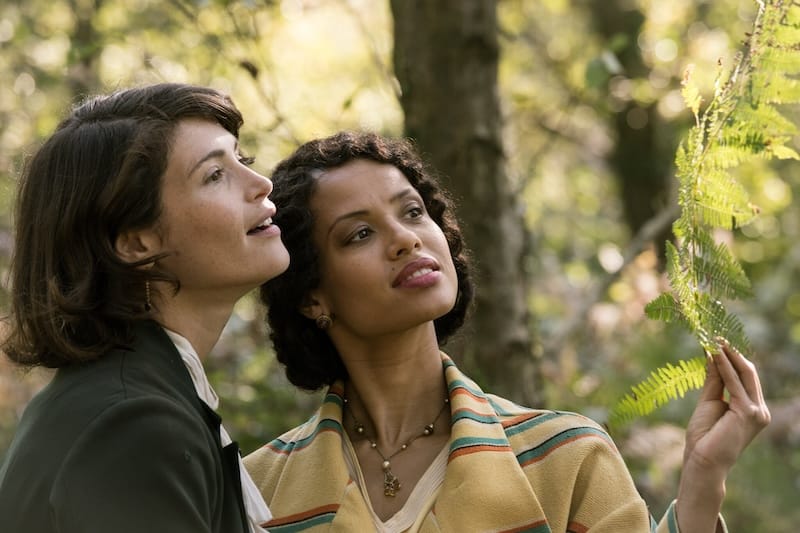
I somehow had never seen Bette Gordon's "Variety," so I decided to remedy that last night and holy fuccccccckk. I would give anything to cruise around 80s Time Square, admiring window displays of dildos and fending off pickpockets. This is one of those movies that initially seems like it's about nothing, but actually has a ton to say about obsession, sexuality, and voyeurism. Even if you don't care about any of those topics, the vibes are so immaculate that it's worth watching just to spend 98 minutes in the NYC of yore when rent was still affordable. The film's protagonist, Christine (Sandy McLeod), is able to afford a studio apartment by working as a ticket-taker at a porn theater. Now, she'd need to make around $160k/year to afford those digs, assuming a conservative average rent of $4k/month and a dumbass landlord requirement of 40x the monthly rent. I'll stop here before we all sink into a deep depression.
While working in the glass ticket booth outside the building's facade, Christine observes — and is in turn, observed by — the men arriving for various $2 screenings. Over time, she becomes increasingly curious about not only what her own theater is showing, but about the magazines, peep shows, and men littering Times Square. One man in particular, a regular in a three-piece suit named Louie (Richard Davidson), catches her eye, and she ends up stalking him after they see a Yankees game together on a date. As the film progresses, Christine begins infiltrating male-dominated spaces and adopting her own version of their lingo. There are a few great scenes where she monologues improvised x-rated fiction at her journalist boyfriend, Mark (Will Patton), much to his visible discomfort. She starts cruising one of the local smut shops, forcing the male patrons to hold her at a weary distance. She even becomes tangentially connected to the mob.
Despite her interest in sex, we never see Christine have it, not even with herself. Her sex monologues to Mark are devoid of passion, and aside from a few scenes in her apartment where she wears revealing clothes and makes a mildly threatening phone call, there aren't many traditional exterior signs of her newfound liberation. Maybe, if Mark had responded to her expressions of desire instead of remaining silent, she would have fucked him. Maybe she never has sex because if she did, she'd surrender some of her power to the viewer, the ultimate voyeur. There's a lot to say about this one, so I should probably write something longer about it.
If I haven't convinced you of the film's merits, just consider how many insanely talented artists were involved in its creation:
- Kathy Acker (screenplay): former sex worker-cum-novelist, poet, and playwright
- Nan Goldin (played the bartender): legendary photographer
- Tom DiCillo (cinematography): director, Jim Jarmusch and Howard Brookner collaborator
- John Lurie (score): founded The Lounge Lizards, paints, acts, composes
- Cookie Mueller (played a bar patron): go read "Walking Through Clear Water in a Pool Painted Black"
There are many more, but this is already too long, so just peep this video.
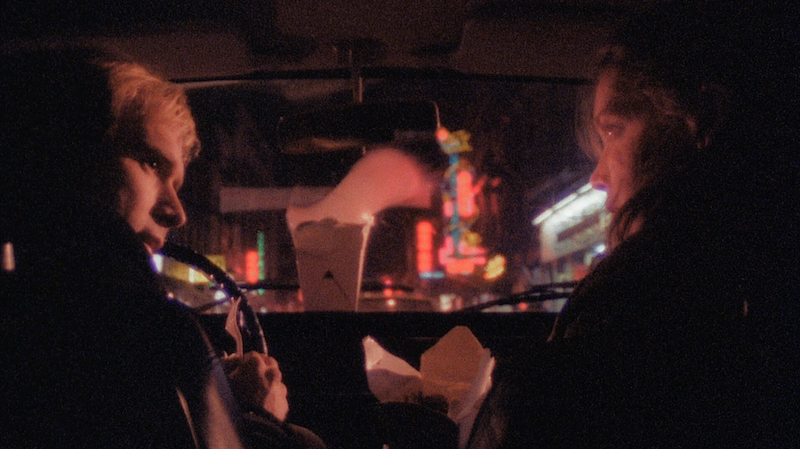
Watch if you like: "Out of the Blue," "Smithereens," Hitchcock, Times Square before Disney had all the sex workers killed, Laura Mulvey, Eileen Myles, slinking around in dark corners.
Once again, I'm angry at everyone I know and the collective internet for letting me get this old without knowing that ADLOUS HUXLEY wrote an incredible children's book called "The Crows of Pearblossom" (1967). It is weird as fuck and I love it! Barbara Cooney (of "Miss Rumphius" fame) did the illustrations, so you know they're top-notch.
